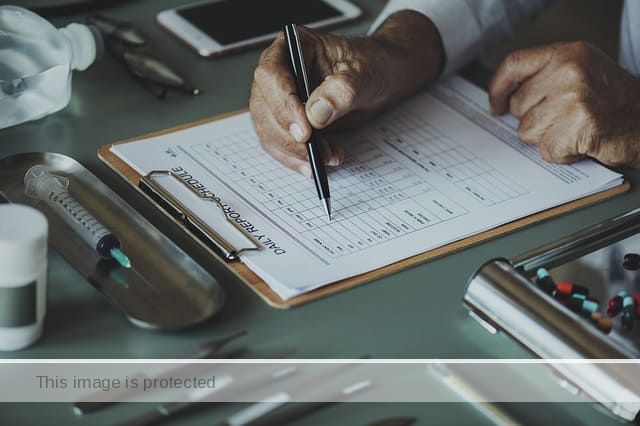SIWES (Meaning • Introduction • Scope • Aim • Objectives)
What is SIWES All About?
SIWES which means Student Industrial Work Experience Scheme, is a compulsory skills training programme designed to expose and prepare students of Nigerian Universities, Polytechnics, Colleges of Education, Colleges of Technology and Colleges of Agriculture, for the industrial work situation they’re likely to meet after graduation.
The scheme also affords students the opportunity of familiarizing and exposing themselves to the needed experience in handling equipment and machinery that are usually not available in their institution.
Before the establishment of the scheme, there was a growing concern among industrialists that graduates of institutions of higher learning lacked adequate practical background studies preparatory for employment in industries.
Thus, employers were of the opinion that the theoretical education in higher institutions wasn’t responsive to the needs of the employers of labour.
The Industrial Training Fund (I.T.F) did SIWES introduction, initiation and design in 1993 to acquaint students with the skills of handling employer’s equipment and machinery.
The Industrial Training Fund (I.T.F) solely funded the scheme during its formative years.
However, because of financial constraints, the fund withdrew from the scheme in 1978.
The Federal Government, noting the significance of the skills training, handed the management of the scheme to both the National Universities Commission (N.U.C) and the National Board for Technical Education (N.B.T.E) in 1979.
The management and implementation of the scheme was, however, reverted to the I.T.F by the Federal Government in November 1984 and the administration was effectively taken over by the Industrial Training Fund in July 1985, with the funding solely borne by the Federal Government.
READ ⇒ Top 41 High-Paying Courses to Study in Nigeria [Earn ₦750k Monthly After Graduation]
Aim and Objectives of SIWES in Nigeria
- Provides the avenue for students in institutions of higher learning to gain industrial skills and experiences in their course of study.
- Prepare the students for the industrial work situation they’re likely to meet after graduation.
- Expose students to work method and techniques in handling equipment and machinery that may not be available in their institutions.
- Make the transition from school to the world of work easier and enhance students’ contact for later job placement.
- Provides students with an opportunity to apply their knowledge in actual work situations, bridging the gap between theory and practice.
- Enlist and strengthen employers’ involvement in the entire educational process and prepare students for employment after graduation.
SIWES Students Preparation and Success

If you want to determine your level of preparedness for the programme this year, then this very post section is for you.
You’re about to know the signs that show or determine if you’re actually ready to secure possible placement and will eventually get your desired grade and performances in your training.
You’ll also get to know some costly mistakes you really have to avoid in order to prevent problems.
Finally, you’ll know some important questions you’ve to sincerely answer by yourself before, during and after your industrial training in Nigeria.
Let’s Go…..
1. Confidence
This is the first sign that shows if you are prepared.
Your confidence level determines your competence.
Are you really ready to explore the other part of life, such as working in an organization with your colleagues, abiding by the company’s rules and regulations, experiencing and handling the labour market?
Are you ready to learn and contribute to the various sectors in the country?
2. SIWES Orientation
Do you really know about SIWES in Nigeria? Have you been told and directed by your school on how to easily pay and collect your logbook and forms?
Have you learnt how to easily write and forward your application letters?
If yes, you’re getting prepared.
3. Sending of SIWES Application Letters
Most Nigerian institutions give their I.T students already prepared SIWES application letters so that they will print more copies, enter their details, and send to their desired course-related companies.
But, sometimes the I.T students may have to write it by themselves.
So, which category are you in?
Having paid and collected your logbook, forms etc. and have gotten wonderful knowledge about the programme, have you started visiting the correct locations of your desired course-related firms and submitting your application letters while waiting for feed backs?
If yes, you’re seriously getting ready because time waits for no one.
4. Acceptance and Commencement of Your Training
Now that you’ve been accepted and probably began your industrial training, are you willing to abide by the rules and regulations of the firm?
Are you actually carrying out activities, projects, jobs that are related to your course of study in school in the section(s) you’ve been assigned to?
For Example:
As an Office Management or Public Admin I.T student in the bank, hope you’re working in the Customer Care Department and not in the Security Department?
OR
As a Biochemistry I.T student working in a hospital, hope you’re mainly working in the laboratory section and not in the reception room?
You really deserve to know better.
5. Forwarding of Your S.C.A.F Form
Have you fill and sent your Student Commencement Attachment Form to the ITF Area Office in the state your training is carried out?
6. Signing and Stamping of Your SIWES Logbook
While at your workplace, you’ve to ask and verify from your Industry-Based-Supervisor when your logbook will be signed and stamped.
Will it be daily, weekly, monthly or at the end of your industrial training?
Do you know the correct way to fill in your SIWES logbook?
You’ll also have to always be punctual to your workplace, because you may not know the exact days the University-Based-Supervisor assigned to you by your school will probably visit.
If you’re always punctual, hardworking and committed to your work, you won’t only get your desired grade and performances in the programme, but you’ll also succeed in life. And I mean it!
7. ITF Form 8
Now that you’re probably through with your industrial training, is your logbook filled, i.e. if your training was stipulated for six months, is your logbook filled up to the required six months and not below or above?
Has your logbook been thoroughly signed and stamped by your Industry-Based-Supervisor?
Have you then fill in your ITF Form 8?
Has your employer signed and stamped after filling in his/her own section?
» Industry-Based-Supervisor and Employer are not always the same thing or person.
I will clearly explain…
As a Biochemistry student, I was opportune to undergo my industrial training in a private hospital in Owerri.
I worked in the laboratory section under the laboratory scientist who was my industry-based-supervisor.
He was responsible for teaching, guiding, monitoring me and signing, stamping on my logbook.
As you can see, he was just my supervisor, but not actually the owner of the hospital.
So, the Employer’s Section in your ITF Form 8 has to be fill, signed and stamped by the owner of the firm you undergo your training, because the questions in that section on the form can only be answered and approved by the owner/manager.
If your industry-based-supervisor is the owner of the firm, then there is no problem at all.
Now that your ITF Form 8 has been fill in by you, signed and stamped by your employer, then you’ll have to send it to the ITF Area Office in the state your training is carried out.
» Your university-based-supervisor has to fill in his/her own section, but you don’t have to worry if you don’t have one.
Just submit it like that as far as it has been filled by both you and your employer.
While at the ITF Area Office, your ITF Form 8 will be cross-checked before your logbook will then be signed and stamped by any of the officials.
After that, you’ll be given back this form together with your logbook, which you’ll submit to probably your lecturers/department when you return to your school.
READ ⇒ The Best Universities and Polytechnics in Nigeria [Latest Ranking]
8. SIWES Report
Have you learnt and know the proper way to write a good and presentable SIWES report?
Do you know the recommended format to use in your report writing?
Have you seen a report sample before?
If yes, you’re really aiming for success!
9. Oral Presentation
Are you actually prepared to be interviewed by your lecturers/supervisors to know if actually you took part and benefited from the training at all?
If you’re ready and prepared at this stage, then the sky is already your starting point in your academic pursuit.
READ ⇒ SIWES Placement: How to Apply and Secure Your I.T in Nigeria







Please how do I cite this post?
is it a must to do siwes
2 years now SIWES hasn’t paid what could be the reason?
That’s Nigeria for you.
Pls in form 8 what does total number of weeks engaged in industrial attachment mean
It means your training duration.
For example, if your training is 6 Months, the Total Number of Weeks will be 24 (4 Weeks in a month X 6).
Below my SCAF form, there’s a space where the employer’s signature is required. Is the employer’s signature necessary before i forward it to the ITF office or not?
It is necessary.
Your works are great, and it has inspired a lot of students in Nigeria… God bless your works.
Thanks Bro.
Pls I need the reference of the works you have loaded in here
Please what font size, style and line height is appropriate to write a siwes report?
Carefully read this ⇒ SIWES Report Writing.
Do we have any form 4 to Fill and submit to ITF? if yes pls what’s form 4 and when do I submit to ITF. THANKS
I don’t think there’s anything like Form 4. It’s just ITF Form 8.
Pls, if I want to start my siwes report which website would I go? Also how to fill my logbook.
Click to learn how to fill your logbook and write your report correctly.
Plz is SIWES REPORT the same as log book?
No. There are different.
This is great man.
Thanks for this
Great information
Please i went to ITF office to sign my form8 and they said that its the institution that meant to send the form 8 to them therefore they refused to sign it for me
They’ll only stamp and sign your logbook after going through your form 8 to verify you actually did the Training.
Your logbook and form 8 will go back to the school. They’ll grade you after defense and forward same to ITF.
Thanks for the information
Wow! thanks so much i learn a lot. My question is that,is it a most to fill the form SPE1 as well.
It was really nice getting this post of yours regarding the Student’s Industrial Work Experience Scheme. I appreciate its advantage and benefits.
THANKS..GOD BLESS
Thanks A Million Times. I learnt a lot from this post.
You’re welcome. Glad it helped.
I really really appreciates and satisfied with all the best information you provided with regards to SIWES thanks.
You’re welcome.
You mentioned that the FORM 8 must be signed by the employer and not the industry based supervisor but in my case am currently doing my IT in a bank…Who is supposed to sign it? and does it also apply to the FORM SPE 1?
The person to sign is the one who has the ability or capability to employ and pay you full-time as a worker in the bank aside your I.T.
The Industry based supervisor may just be a worker (not the C.E.O or Managing Director) in the bank.
In some cases, they can still sign the FORM 8 on behalf of the Employer.
Thanks for the information regarding to siwes programme we appreciate you.
Thanks so helpful, my question is that is there any amount paid by the siwes body to polytechnics students during or after the program?
I am absolutely satisfied with the information provided with regards to the students work experience scheme (SIWES). Thanks
Thanks for being here. Do keep coming back for more information on the SIWES programme in Nigeria.
When you are asked to brief outline of experience of training provided what does it mean.
When you are asked to brief outline of experience of training provided what does it mean.
It means you should summarize your training, i.e. what you learnt and carried out in your work place.